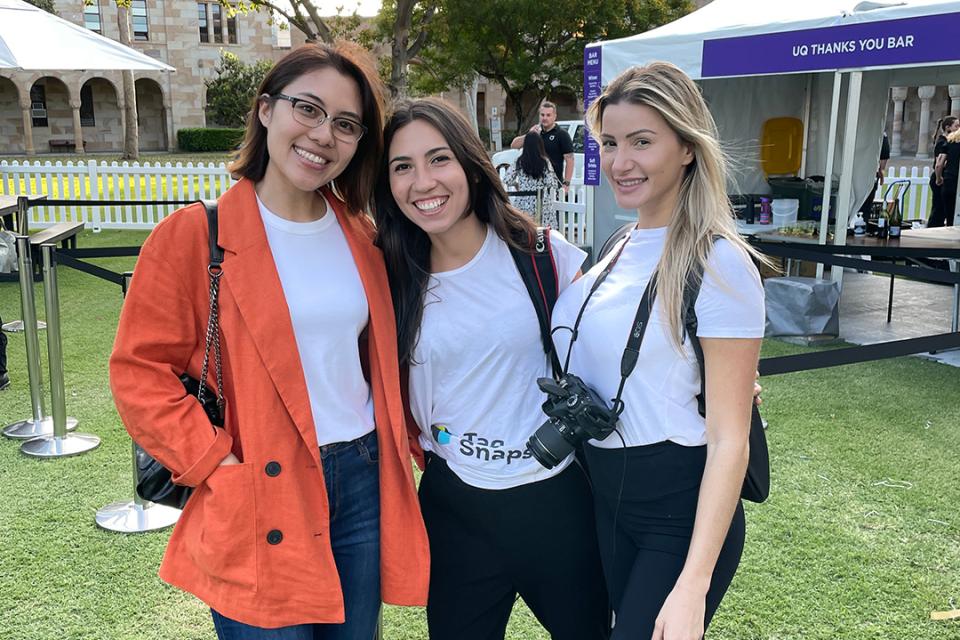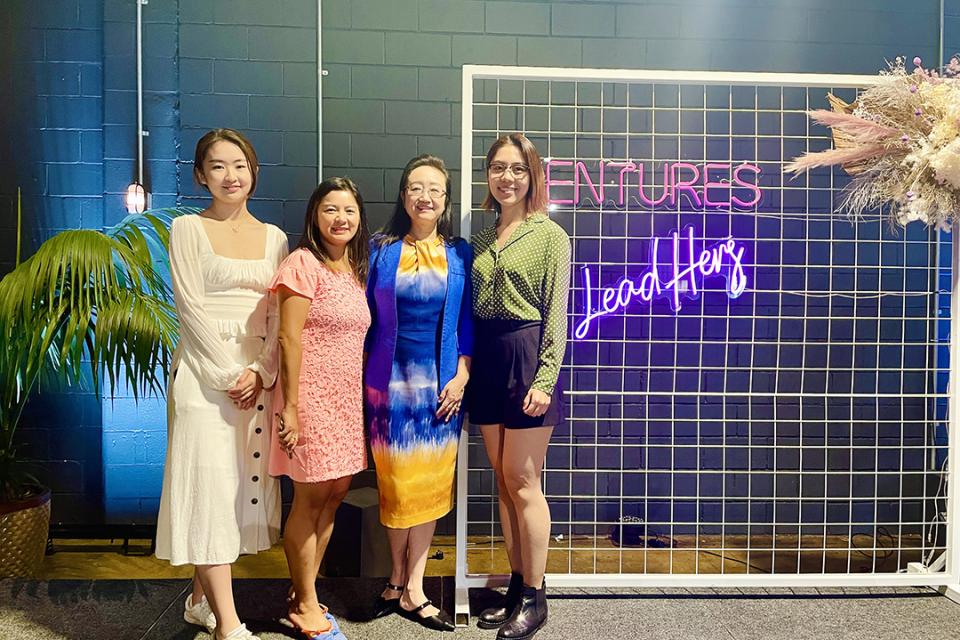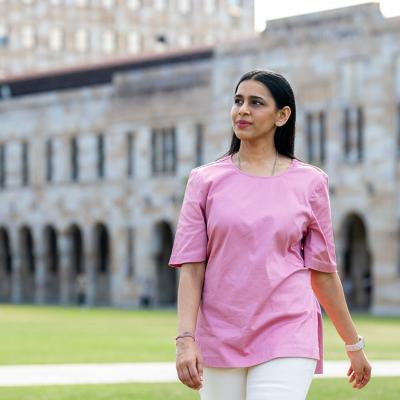What makes the Australian university experience different from other countries?
As you pack your bags and get yourself ready to move to another country, it’s natural to start to wonder what it will be like and how it will be different.
You might be questioning whether the teaching style is different and how you’ll need to adapt as a learner.
To help you understand this question and get prepared for your uniquely Australian adventure, we asked recent Master of Arts in Translation and Interpreting graduate, Fiona Jin, about her experience as an international student at UQ.
Here are 5 lessons she learnt along the way.
Before arriving in Australia, I was prepared for it to be different. I’ve always been incredibly curious when it comes to different cultures. What I didn’t expect was how this new culture and lifestyle would challenge the way I see learning and change my behaviour as a student.

Rameez Tayob, Dylan Vaughan-Jones, Fiona Jin and Natasha Neradil at The University of Queensland. Picture: Richard Walker
#1. I became an active learner
Everything about the teaching style at UQ encourages you to speak up and actively engage in open discussions. When I first arrived, I remember being shocked by the way students would debate with teachers in the classroom. This was new to me. Coming from China, I was used to classrooms where learners took a more passive approach to learning. Debating with a teacher could be seen as disrespectful or rude. In Australia, you are encouraged to always question what you’re learning as a way to engage with the content. It took some getting used to, but this new way of teaching gave me more confidence in my own ideas and enhanced my critical thinking skills.
#2. Learning is accelerated when you feel comfortable
Studying in Australia has taught me that you learn more effectively when you feel comfortable. To get there, you need to feel at ease with your teachers. This was hard for me in the beginning because I always imagined a barrier between teachers and students. I assumed it wasn’t my place to go up to a teacher and ask questions. That all changed at UQ – the lecturers and tutors made me feel welcome and supported from day one. Even though the academics are world-renowned scholars in their fields, they are friendly, approachable and always eager to help you when you need it. I’ve even had a coffee with some of my teachers over the years. Breaking down those barriers has been a powerful learning experience for me. It not only helped me unlock more career opportunities, but also helped me grow as a person.
#3. A global classroom creates a global mindset

One of the great advantages of studying in an international environment is that it brings you in contact with people from all over the world. My classmates and teachers were from diverse backgrounds and the curriculum covered extensive global research. Having such a culturally rich classroom not only fostered inclusion and awareness but also prepared me to thrive in an exponentially diverse world. I feel prepared to work anywhere now.
#4. Assessments are not just exams
When I arrived, I assumed I’d be doing final exams as my main form of assessment. I was pleasantly surprised that there were many different forms of assessment during semester. Instead of exams, sometimes you have written reports, practical work, quizzes, case studies and oral presentations. Many of these assessments were developed to reflect real industry projects. One of my favourite assessments took place in the Televic conference room (the same interpreting technology used by the United Nations) where we had to carry out a live conference interpreting exercise.
#5. The power of industry connection

My time at UQ has taught me the value of industry connection and hands-on learning. Over the course of my program, I’ve had the opportunity to engage with industry-relevant guest speakers and apply my knowledge to real-world contexts in volunteering and employability programs, as well as two separate internships. I was fortunate to have the unique experience of interning as a Communications Officer in Shanghai, which broadened my horizons, deepened my connections, and gave me insight into the vast career opportunities in my field.
Final thoughts
There’s no better way to develop your independence and resilience than to study overseas as an international student. You’ll expand your academic horizons and come away with a range of new skills and perspectives that will develop your confidence and expose you to new ways of thinking. It’s an experience that allows you to enhance your education and life experience outside your comfort zone. UQ’s collaborative teaching style will give you a refreshing perspective on your own learning and will set you up for your own personal and professional success.





